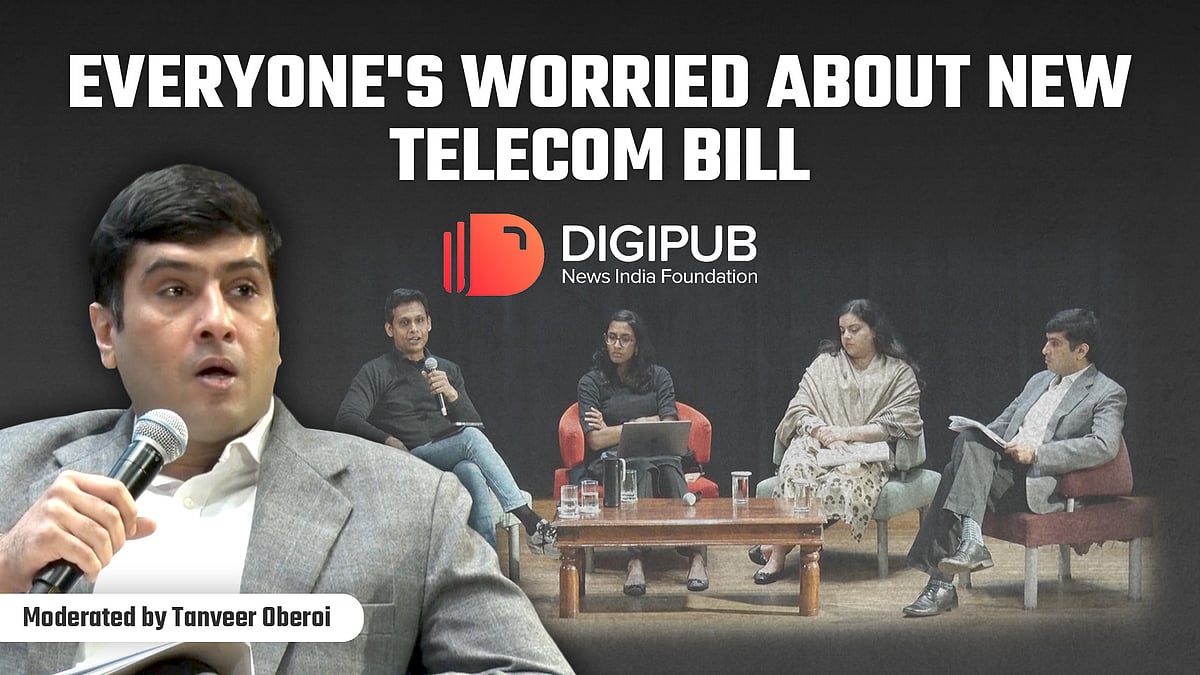Surrogate ads, voter surveillance, hate speech online: Civil society groups write to EC ahead of polls
The letter urged the EC to take steps to ‘uphold and defend the integrity of the next general elections’.
Voter surveillance, deepfakes, surrogate advertisements, and the inadequacies of the “voluntary code of conduct”.
These are four broad issues highlighted by 11 civil society groups in a detailed letter to the Election Commission of India this week. With days to go for the first phase of polling in India’s general election, the letter flagged “collective concerns about the integrity” of the upcoming polls, especially in the context of the “role of technology in affecting electoral process and outputs”.
Signatories included the Article 21 Trust, Association for Democratic Reforms, Campaign Against Hate Speech, Internet Freedom Foundation, LibTech India, Maadhyam, Mazdoor Kisan Shakti Sangathan, National Alliance of People’s Movements, Rajasthani Asangathit Mazdoor Union, Software Freedom Law Center, India and Common Cause, India.
The letter appealed to the Election Commission to take certain steps to “uphold and defend the integrity of the next general elections”.
Online hate and ads, ‘voluntary’ code
The letter first tackled the issue of “online campaigning and surrogate advertisements”, saying they were used by political actors to “influence voter perception and beliefs”.
The signatories said that, for several years, there’s been “sufficient evidence” on the design of digital platforms facilitating “hateful content”, and political parties spend large sums on online ads, with the BJP leading the pack. This includes expenditure on “proxy ads” by pages that support a party but without an official affiliation to the party.
“Expenditure by political parties, through formal and informal means, is generally difficult to track. Unlike official expenditure for offline campaign, digital media campaigns are often difficult to analyse as both the amount of money involved and the methodology used for targeting remain in the background, and are the exclusive domain of the digital platforms,” the letter said.
The letter also criticised the “voluntary code of ethics”, first announced in March 2019 as a commitment by social media platforms to “ensure free and fair ethical usage” of these platforms to maintain the integrity of the electoral process. However, the letter said the code was drafted “without any transparency, public inputs or civil society engagement”. It also said the code is “not binding” and has “no legal force”; there is no avenue for citizens and others to report violations of the code too.
“Conversely, there is ample evidence of explicitly forbidden speech detailed in the code allowed to flourish on social media. This includes aggravating existing differences, creating mutual hatred, causing tensions, criticising the private lives of politicians and appealing to the caste and communal divide,” the letter pointed out.
Deepfakes and surveillance
On the issue of “deepfakes”, the 11 organisations said political parties today are “increasingly becoming comfortable with sharing AI-generated political content on social media through official accounts, often without any disclosure”.
“Given the low rates of media and information literacy as well as the divisive politics in the country, the severity of threats posed by AI-generated synthetic media must be acknowledged at the earliest, especially in the election context.”
It also warned against surveillance, noting that the Election Commission itself had “shown interest in using surveillance tools and face recognition technologies” at polling booths.
“The deployment of video surveillance equipment is likely to hurt individual fundamental rights, notably the right to privacy and dignity and the right to vote without fear or coercion and may also be perceived as voter intimidation,” the letter said.
Earlier experiments with such technologies in India were “plagued with logistical issues and inaccuracies”. And facial data is “far more vulnerable than any other biometric identifier” even as it’s often more inaccurate too.
Appeals to the EC
The letter broadly suggested that the Election Commission impose a “model code of conduct”, spearheaded by a third-party, independent organisation and to be followed by political parties and digital companies.
It also said the commission must make it mandatory for all candidates and parties to publicly disclose “details of all digital spending” during the election campaign process. The signatories asked the commission to “arrive at a clear definition” for surrogate advertising and establish guidelines for parties.
On hate speech online, the letter urged the EC to “engage” with news organisations, civil society groups and others to “combat disinformation, hate news circulation, and improve fact-checking during the poll process”. Parties and candidates must “publicly commit not to use deepfakes technology” and the EC itself “must disallow the use of any surveillance technologies, such as drones, CCTVs, and FRT, at polling stations during the election period”.
Newslaundry has previously written about how, over the years, the government has enthusiastically pursued the idea of “digital India” – but it comes at a severe cost. Read this piece on this might be a dangerous trend.
Small teams can do great things. All it takes is a subscription. Subscribe now and power Newslaundry’s work.
 Digital Dialogues: Why everyone’s worried about India’s new Telecom Bill
Digital Dialogues: Why everyone’s worried about India’s new Telecom Bill